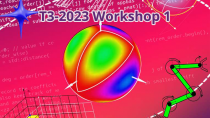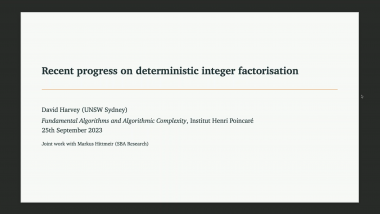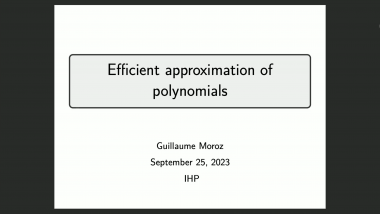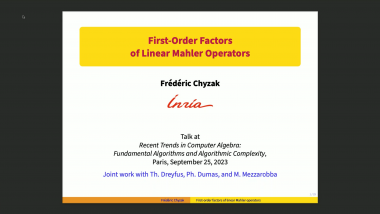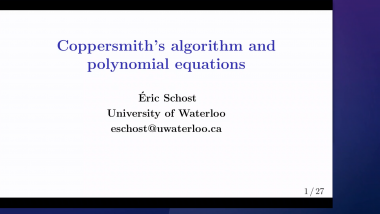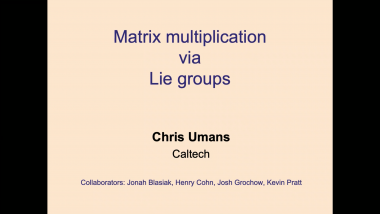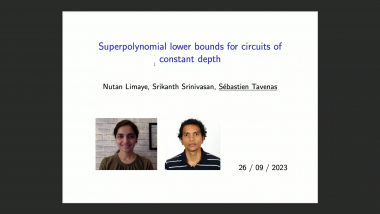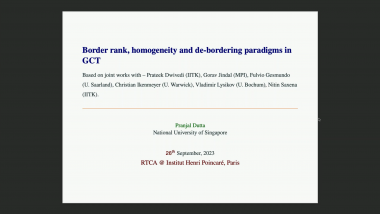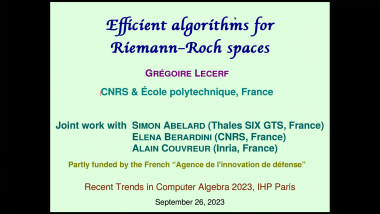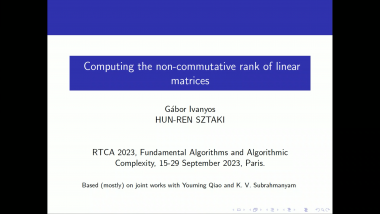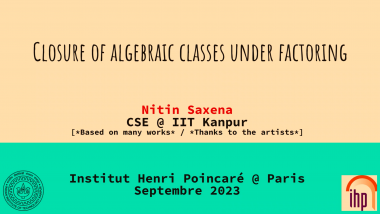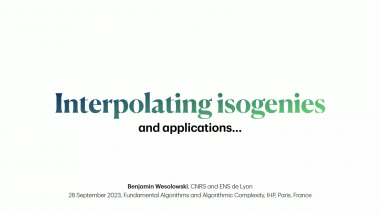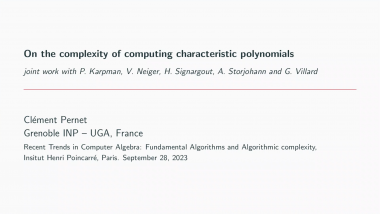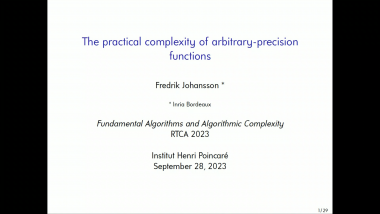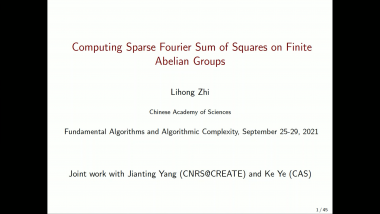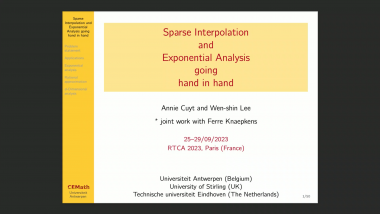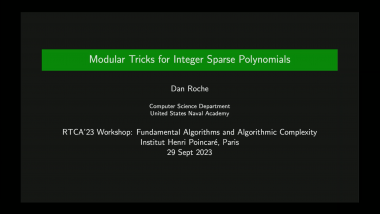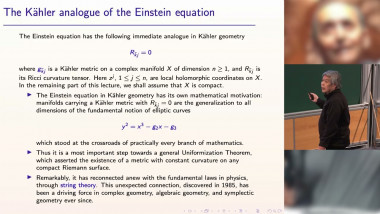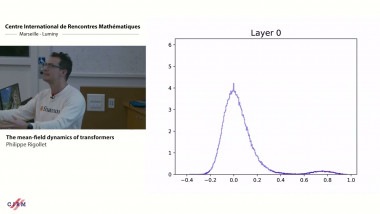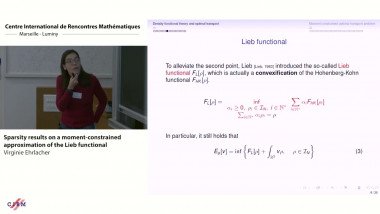Computing the non-commutative rank of linear matrices
The topic of the talk connects skew-fields, polynomial identity testing, invariant theory and optimization. By a linear matrix we mean a matrix having homogeneous linear entries and the non-commutative rank is the rank when we consider the variables as elements of the appropriate free skew-field. Computing it is a relaxation of determining the maximal rank of a matrix in a given linear space of matrices. A remarkable characterization can be given in terms of a large common zero block of the coefficient matrices after a change of basis. We will present the main ideas of a deterministic polynomial time algorithm that computes the noncom-mutative rank. Note that existence of an efficient deterministic method computing the ordinary rank is a famous open problem in polynomial identity testing. The algorithm gives lower and upper witnesses for the rank. The lower witness is a polynomial invariant of a sub-matrix while the upper witness is given by a common zero block. We will also discuss some applications of the algorithm. The talk is based on joint works with Youming Qiao and K. V. Subrahmanyam.











